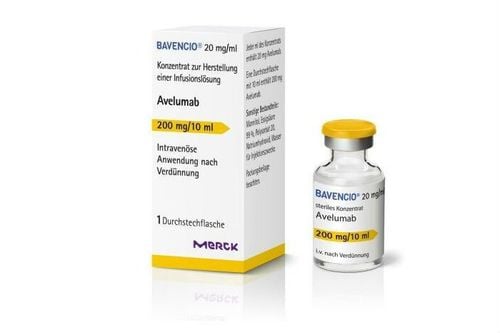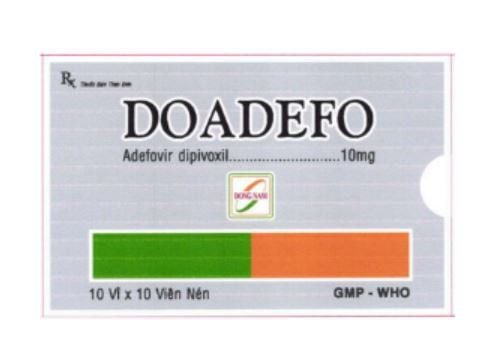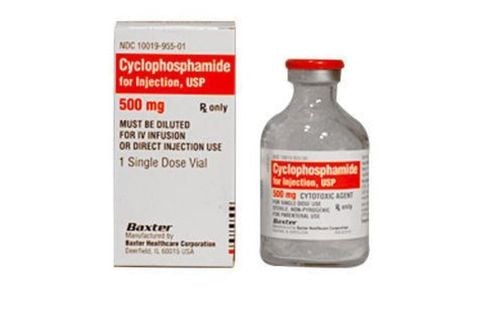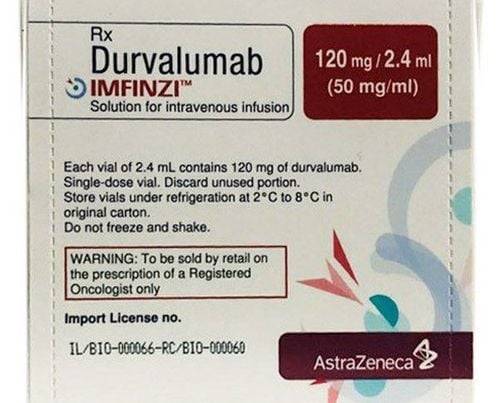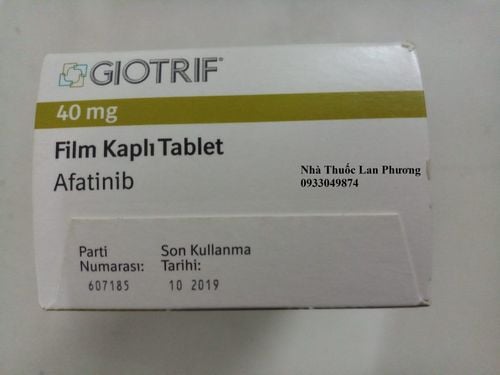This is an automatically translated article.
Ciazil drug whose main ingredient is Epirubicin hydrochloride is widely used in the treatment of neoplastic diseases such as: malignant lymphoma, breast cancer, soft tissue sarcoma, liver cancer, stomach, pancreas, sigmoid rectum, cancer. lung, hillock and neck cancer, ovarian cancer, and leukemia. The drug is given as an intravenous injection or a drop into the bladder.
1. What is Ciazil?
Ciazil drug has the main active ingredient Epirubicin hydrochloride, a new type of anthracycline antibiotic with anti-cell activity. With its composition, Ciazil is often indicated for a number of cases such as:
Breast cancer ; Advanced ovarian cancer; Small cell lung cancer ; Stomach cancer ; When administered via the bladder, the active ingredient Epirubicin has been shown to be beneficial in the treatment of:
Papillary elastic cell carcinoma of the bladder; Carcinoma in situ in bladder cancer; Prevention of recurrence of bladder surface cancer after transurethral resection.
2. Instructions on how to use Ciazil
Ciazil is only used through 2 routes: intravenous infusion or drip into the bladder. Do not use for intramuscular or subcutaneous injection because of very strong tissue irritation.When using single dose Epirubicin hydrochloride
Usual adult dose: 60-90mg/m2 intravenously over 3-5 minutes. Depending on the patient's marrow and blood, the dose should be repeated after 3 weeks; Doses lower than 60-75 mg/m2 are recommended for patients with myelosuppression caused by chemotherapy or radiation, old age, or cancer that invades the bone marrow; If Epirubicin is used in combination with other antineoplastic agents, the dose should be reduced accordingly to avoid increased hepatotoxicity. Specifically:
Patients with moderate hepatic impairment (bilirubin: 1.4-3mg/100ml or BSP retention: 9-15%): Need to reduce the dose by 50%; Patients with severe hepatic impairment (bilirubin > 3 mg/100 ml or BSP retention > 15%): Reduce dose by 75%. Note:
The total dose can be divided for infusion in 2-3 consecutive days; No dose reduction is required for moderate renal impairment; Epirubicin hydrochloride should not be mixed with Heparin because of chemical incompatibility and possible precipitation; Epirubicin hydrochloride can be used in combination with other antineoplastic agents, but mixing in the same infusion tube is not recommended.
3. Side effects of the drug Ciazil
In addition to the 2 main side effects, which are spinal cord compression and cardiotoxicity, Ciazil can also cause other side effects such as:
Hair loss (reversible in about 60-90% of cases); Mucositis (may occur 5-10 days from the start of treatment, usually stomatitis, sores along the mucosa of the tongue and under the tongue); Gastrointestinal disorders, nausea and vomiting, diarrhea; Increase body temperature.
4. Notes when using Ciazil
Contraindicated to use Ciazil intravenous infusion in the following cases:
People with hypersensitivity to Hydroxybenzoate, Epirubicin component, Anthracyclines, Anthracenediones or any other components of the preparation; Patients with severe spinal cord compression due to previous anticancer drugs or radiation therapy; Patients treated with the maximum dose causing accumulation of other anthracyclines such as Daunorubicin or Doxorubicin ; People with a history of or are suffering from arrhythmias, severe heart failure; People with recent myocardial infarction, acute coronary syndrome (unstable angina); Patients with severe liver failure; Patients with prolonged myelosuppression; Patients with acute systemic infections; Pregnant; Breastfeeding women; Patients with neutrophil count less than 1.5x 109/liter (1500/mm3); Contraindications to using Ciazil by the bladder for the following cases:
Urinary tract infections; There is a tumor that invades the bladder; Have problems related to urinary tract; Cystitis; Blood in urine; The bladder is shrinking; The residual volume of urine in the bladder is large. In general, treatment with Epirubicin should generally be prescribed and monitored regularly by experienced specialists. Before treatment with Epirubicin, patients should be instructed to recover from acute toxic conditions such as stomatitis, mucositis, neutropenia, decreased infection and thrombocytopenia resulting from the treatment causing previous cytotoxicity.
Please dial HOTLINE for more information or register for an appointment HERE. Download MyVinmec app to make appointments faster and to manage your bookings easily.




